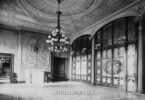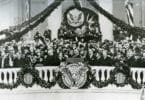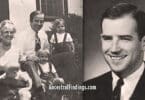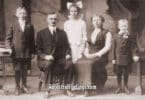George Walker Bush, the 43rd President of the United States, served two terms during one of the most tumultuous periods in modern American history. From the September 11 attacks to the global War on Terror, his presidency defined an era. However, his story begins with a deeply rooted family legacy that shaped his values, ambitions, and path to the White House. As the son of President George H. W. Bush, George W. Bush is part of one of America’s most prominent political dynasties.
Family Roots: The Bush Dynasty and Walker Legacy
George W. Bush was born on July 6, 1946, in New Haven, Connecticut, to George H. W. Bush and Barbara Pierce Bush. His family history is steeped in public service, wealth, and influence, tracing back to some of America’s earliest settlers.
The Bush Family Lineage:
The Bush family’s lineage dates back to colonial America, with English ancestors who arrived in the 1600s. Early Bush family members were prominent landowners and community leaders in Massachusetts and Connecticut. Prescott Bush, George W. Bush’s grandfather, served as a U.S. Senator from Connecticut and was a prominent banker. Known for his advocacy of environmental conservation and civil rights, Prescott set a precedent for public service within the Bush family.
The Walker Family Lineage:
On his mother’s side, George W. Bush inherited the Walker legacy, a line of ambitious financiers and entrepreneurs. His maternal great-grandfather, George Herbert Walker, was a successful banker and businessman who helped establish the Walker Cup, a prestigious golf competition. The Walker family instilled a spirit of competitiveness and determination that complemented the Bush family’s emphasis on service and tradition.
This blend of public service from the Bush side and entrepreneurial spirit from the Walker side created a unique foundation for George W. Bush’s upbringing and eventual political career.
Childhood and Education: A Presidential Upbringing
George W. Bush spent much of his early childhood in Midland, Texas, where his father worked in the burgeoning oil industry. Life in Texas shaped his identity, fostering a love for the outdoors and a down-to-earth demeanor that would become hallmarks of his personality. His family later moved to Houston, further cementing their ties to Texas.
Bush attended prestigious schools, including Phillips Academy in Andover, Massachusetts, where he struggled academically but excelled socially as a natural leader. He went on to Yale University, following in the footsteps of his father and grandfather. At Yale, Bush majored in history and became a member of the exclusive Skull and Bones Society, an experience that connected him with influential peers.
After graduating from Yale in 1968, Bush enlisted in the Texas Air National Guard during the Vietnam War, where he trained as a pilot. Although his military service has been scrutinized, it reflected his family’s tradition of serving the nation.
Bush later earned an MBA from Harvard Business School, becoming the first U.S. president to hold an MBA degree. His business education prepared him for future endeavors in the oil industry and beyond.
Marriage and Family Life: The Bush Family Today
In 1977, George W. Bush married Laura Welch, a librarian and teacher from Midland, Texas. Laura’s steady and thoughtful nature balanced Bush’s energetic and sometimes impulsive personality. Together, they built a strong partnership that endured the pressures of public life.
The Bushes have twin daughters, Barbara Pierce Bush and Jenna Bush Hager, born in 1981. Both daughters have pursued careers in public service and media, maintaining a presence in the public eye while supporting causes such as global health and education. The Bush family’s close-knit dynamic, shaped by shared values and mutual support, became a cornerstone of George W. Bush’s presidency.
Political Career: From Texas Governor to the White House
George W. Bush began his political career in earnest when he was elected Governor of Texas in 1994, defeating popular incumbent Ann Richards. As governor, Bush focused on education reform, tax cuts, and reducing bureaucracy. His ability to work across party lines and his emphasis on compassionate conservatism resonated with voters, paving the way for his national political ambitions.
In 2000, Bush ran for president, campaigning on tax relief, education reform, and restoring dignity to the office. The election was one of the closest in U.S. history, culminating in a controversial Supreme Court decision that secured his victory over Democratic candidate Al Gore. Bush became the 43rd President of the United States and the second in his family to hold the office.
The Bush Presidency: Defining an Era
Bush’s presidency (2001–2009) began with a focus on domestic issues but was soon reshaped by September 11, 2001. The terrorist attacks marked a turning point in American history, and Bush’s response defined much of his presidency. He declared a War on Terror, leading to military interventions in Afghanistan and Iraq. His administration also created the Department of Homeland Security and passed the USA PATRIOT Act to enhance national security.
Domestically, Bush pursued significant policies such as No Child Left Behind, which improved education standards, and Medicare Part D, which expanded prescription drug coverage for seniors. His second term, however, was marked by challenges, including criticism over the Iraq War, the federal response to Hurricane Katrina, and the 2008 financial crisis.
Despite these controversies, Bush’s ability to connect with people personally remained a defining trait of his presidency. His leadership style, often decisive and straightforward, reflected his Texas roots and family upbringing.
A Personal Side: Faith, Humor, and Hobbies
Faith played a central role in George W. Bush’s life and presidency. A born-again Christian, Bush often spoke about how his faith helped him overcome personal struggles, including a period of heavy drinking in his younger years. He credited Laura and his faith with guiding him toward a life of service and purpose.
Bush’s sense of humor and love of nicknames added a relatable dimension to his presidency. He was known for giving humorous monikers to colleagues, reporters, and staff, creating a sense of camaraderie. His hobbies included painting and outdoor activities such as biking and clearing brush at his Crawford, Texas, ranch, where he often retreated for reflection and relaxation.
Post-Presidency: A Life of Service and Art
Since leaving office, George W. Bush has focused on philanthropy, writing, and art. He established the George W. Bush Institute to address education, global health, and leadership issues. His memoir, Decision Points, offers an introspective look at his presidency and the decisions that defined his time in office.
In recent years, Bush has gained recognition for his paintings, mainly portraits of veterans and world leaders. His book Portraits of Courage features paintings of wounded veterans, highlighting their stories and resilience.
Final Thoughts
George W. Bush’s life is a story of family legacy, personal growth, and national leadership. As the son of a president, he inherited a tradition of public service that he carried forward in his unique way. From his upbringing in Texas to his time in the White House, Bush’s journey reflects the values of resilience, faith, and dedication to his country. His legacy, like his family’s, continues to shape the fabric of American history.






